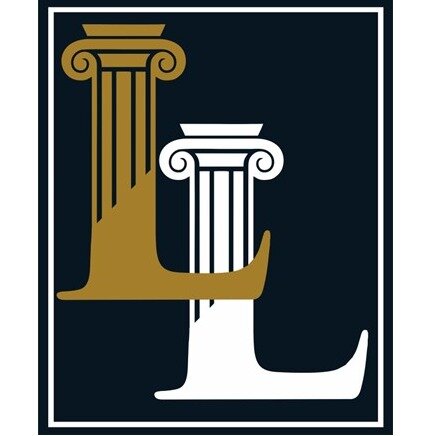Best Private Client Lawyers in Philippines
Share your needs with us, get contacted by law firms.
Free. Takes 2 min.
Or refine your search by selecting a city:
List of the best lawyers in Philippines

Dagsaan Monterde Castillo Law and Notary Public (DMC LAW)
15 minutes Free ConsultationPhilippines Private Client Legal Questions answered by Lawyers
Browse our 2 legal questions about Private Client in Philippines and read the lawyer answers, or ask your own questions for free.
- Middle Name Issue
- My middle name is spelled wrong. The problem is I was born in Malabang and going to Malabang is not possible for me at the moment. Is there a way to change it with the help of a lawyer?
-
Lawyer answer by CAGUIA TAN & CUA Law Offices
Our office can assist you on this matter. Since traveling to Malabang is not possible for you, the law provides a solution called a Migrant Petition. How it works: You can file your petition at the Local Civil Registry Office...
Read full answer - Family wealth transfer into a living trust
- Hi I would like to have all my assets including but not limited to real estate chattels any any money including crypto transferred into a living trust online trustees can access upon my death
-
Lawyer answer by Recososa Law Firm
Hello: Creating a living trust in the Philippines is a wise estate-planning tool to ensure your family wealth is efficiently managed and transferred to your chosen beneficiaries without going through a lengthy probate process. Under Philippine law, a trust is...
Read full answer
About Private Client Law in Philippines
Private client law in the Philippines refers to the legal services and advice provided to individuals and families regarding their personal, family, and property affairs. This field often includes areas like estate planning, wills, trusts, succession, tax advice, family business structuring, and asset protection. The primary aim is to assist clients in managing, preserving, and transferring their wealth in accordance with Philippine laws and their personal wishes. Private client lawyers work closely with clients to address sensitive issues involving family relationships and financial interests, ensuring compliance with local regulations while achieving client objectives.
Why You May Need a Lawyer
Legal matters involving private client issues can be complex and emotionally charged. People commonly require legal assistance in this field for the following reasons:
- Drafting a will to ensure proper distribution of assets after death
- Probating or administering the estate of a deceased loved one
- Setting up trusts for asset protection or for minors, family, or charitable purposes
- Addressing disputes over inheritance, succession, or transfer of property
- Complying with estate tax and inheritance laws
- Managing or restructuring family businesses
- Handling guardianship or conservatorship for minors or incapacitated family members
- Seeking advice on cross-border assets or citizenship and residency-related succession issues
A lawyer can provide tailored advice, ensure compliance with various laws, and represent your interests in negotiations or court proceedings.
Local Laws Overview
Several key laws and legal principles govern private client matters in the Philippines:
- Civil Code of the Philippines - This is the main law covering succession, wills, and family relationships. It outlines the shares of heirs, requirements for valid wills and inheritance rights.
- Family Code - Governs marriage, family relations, property regimes, and parental authority.
- Rules of Court - Contains the procedures for probate, guardianship, and estate administration cases.
- National Internal Revenue Code - Contains estate tax rules, tax exemptions, and procedures for payment and reporting of estate taxes.
- Trusts - While there is no standalone Trust Code, trusts are recognized and governed by the Civil Code and relevant jurisprudence.
- Foreign Ownership and Cross-Border Issues - There are restrictions on foreign ownership of land, and foreign nationals have special considerations when passing on assets in the Philippines.
Understanding these legal frameworks is crucial to ensure your intentions regarding your estate and family affairs are followed and to minimize risks of disputes or tax penalties.
Frequently Asked Questions
What is required for a will to be valid in the Philippines?
A will must be in writing, signed by the testator (person making the will), and witnessed by at least three individuals who saw the testator sign the will. There are different requirements for notarial and holographic (handwritten) wills. The will must comply with all legal formalities to be admitted to probate.
Who are compulsory heirs under Philippine law?
Compulsory heirs are those entitled by law to a portion of the estate of the deceased. They generally include the legitimate children and descendants, legitimate parents and ascendants, surviving spouse, and, in some cases, illegitimate children.
Can I disinherit a family member in my will?
Disinheritance is allowed but only for specific legal causes stated in the Civil Code, such as serious offenses against the testator or their family. The grounds must be explicitly stated in the will and proven during probate.
What is estate tax, and who pays it?
Estate tax is a tax imposed on the right to transfer property upon death. The estate or the heirs are responsible for paying the estate tax before the assets can be distributed. There are exemptions and deductions available under current tax laws.
What happens if someone dies without a will?
If a person dies intestate (without a will), Philippine intestate succession laws determine how the estate will be divided among the heirs. The shares depend on who survives the deceased and their legal relationships.
How long does estate settlement take in the Philippines?
The duration varies depending on the complexity of the estate, existence of a will, disputes among heirs, and procedural requirements. Simple estates may take a few months, while contested or complex cases could take years.
Can foreigners inherit property in the Philippines?
Foreigners can inherit property in the Philippines by operation of law but are generally restricted from owning land. They may inherit other forms of property and may hold land in trust for a Filipino citizen.
What is the process for probating a will?
Probate is a court proceeding to determine the validity of a will. It involves filing the will with the court, notifying heirs and interested parties, and presenting proof of the will's due execution and authenticity.
How can I set up a trust in the Philippines?
You can establish a trust by executing a trust agreement that specifies the trustee, beneficiaries, assets held in trust, and terms of distribution. Trusts for minors, incapacitated persons, or special purposes are common. Legal advice is recommended for proper structuring.
Do I need a lawyer to draft my will or handle estate matters?
While it is not legally required to hire a lawyer, professional legal assistance is highly recommended to ensure your documents are valid, your intentions are clear, and all laws are complied with, especially for complex estates or when family dynamics are sensitive.
Additional Resources
The following resources may be useful for individuals seeking further information or assistance:
- Department of Justice (DOJ) - Handles questions about legal procedures and requirements for probate and estate matters.
- Bureau of Internal Revenue (BIR) - Provides information on estate tax, tax filings, and exemptions relevant to inheritance and succession cases.
- Integrated Bar of the Philippines (IBP) - The national organization of lawyers in the Philippines, which can refer certified private client attorneys.
- Local Civil Registrars - Offices where death certificates and related civil status documents are secured, typically required in estate proceedings.
- Legal Aid Clinics - Many law schools and bar associations offer free or low cost consultations on basic private client issues.
Next Steps
If you believe you need legal assistance in a private client matter in the Philippines, consider the following actions:
- Identify your primary needs, such as drafting a will, settling an estate, or resolving a family dispute.
- Gather all relevant documents, such as property titles, existing wills, family records, or business documents.
- Consult with a licensed Philippine lawyer who specializes in estate planning, family law, or trusts. The Integrated Bar of the Philippines or local legal aid clinics can help you find qualified professionals.
- Discuss your objectives, concerns, and any family dynamics that may affect your case with your lawyer.
- Follow legal advice regarding timelines, documents to prepare, and steps for compliance with all legal requirements.
- Stay informed and participate in all proceedings, ensuring you understand your rights and obligations at each stage of the process.
Taking these steps will help safeguard your interests, ensure your wishes are respected, and minimize the risk of legal complications for you and your loved ones.
Lawzana helps you find the best lawyers and law firms in Philippines through a curated and pre-screened list of qualified legal professionals. Our platform offers rankings and detailed profiles of attorneys and law firms, allowing you to compare based on practice areas, including Private Client, experience, and client feedback.
Each profile includes a description of the firm's areas of practice, client reviews, team members and partners, year of establishment, spoken languages, office locations, contact information, social media presence, and any published articles or resources. Most firms on our platform speak English and are experienced in both local and international legal matters.
Get a quote from top-rated law firms in Philippines — quickly, securely, and without unnecessary hassle.
Disclaimer:
The information provided on this page is for general informational purposes only and does not constitute legal advice. While we strive to ensure the accuracy and relevance of the content, legal information may change over time, and interpretations of the law can vary. You should always consult with a qualified legal professional for advice specific to your situation.
We disclaim all liability for actions taken or not taken based on the content of this page. If you believe any information is incorrect or outdated, please contact us, and we will review and update it where appropriate.
Browse private client law firms by service in Philippines
Philippines Attorneys in related practice areas.
Browse private client law firms by city in Philippines
Refine your search by selecting a city.
















